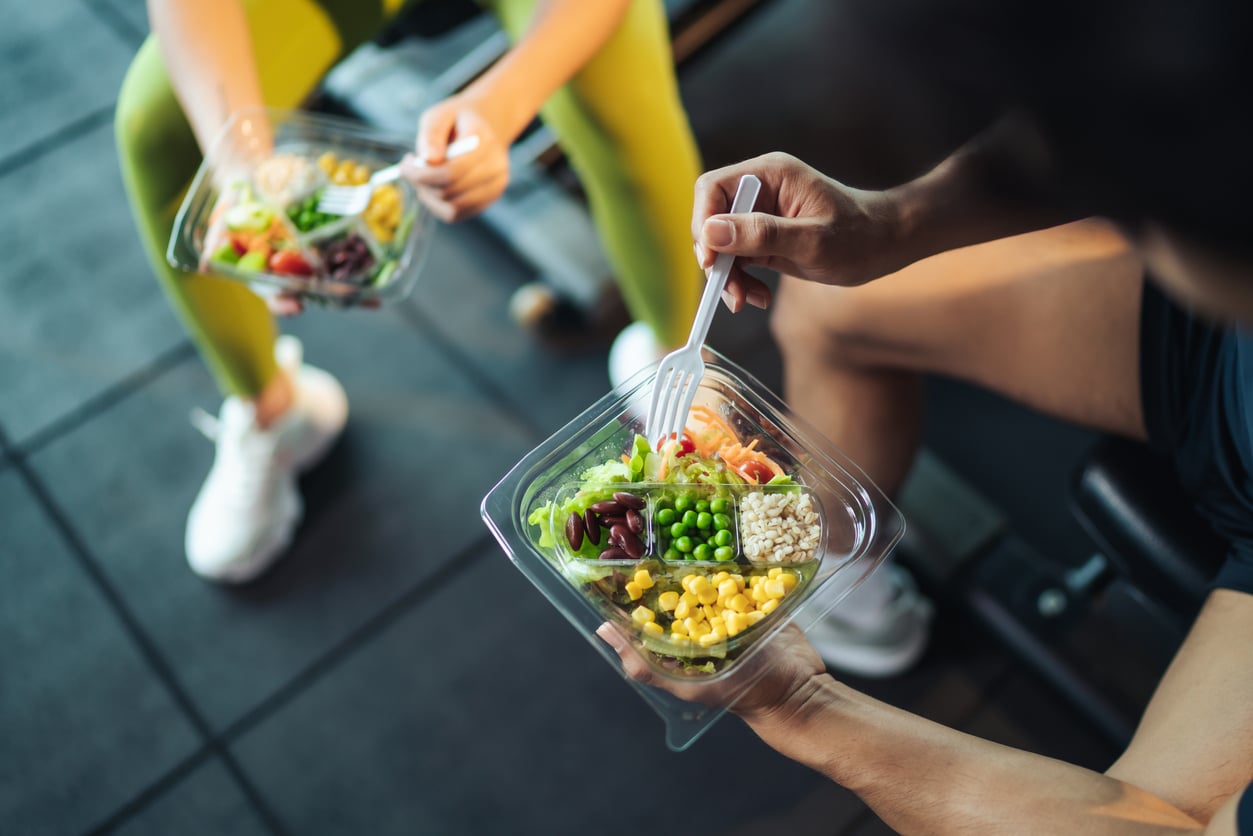Written By: Kira Greasley, BA, CHNC
When talking nutrition, the consensus is clear, what you eat affects not only your health, but your athletic performance and recovery. Everyone has different nutritional needs so the goal should always be to fuel the body to support any training program, provide efficient recovery between workouts, reduce the risk of illness and/or overtraining, so you can achieve your potential.
Now, how you fuel depends on the following factors:
- intensity
- duration
- fitness level, goals and pre-exercise diet
What you fuel with is reliant upon the following three macronutrients:
Carbohydrates, or carbs are your body’s clean burning fuel source and is the most important source of energy. Your daily carb intake should match the fuel needs of your training but keep in mind that all carbs are not created equal. Simple carbs like refined breads and pastas (now I am talking the white pasta), pastries and sweets are void of any nutrients and fiber, providing only a quick bump in your blood glucose levels that will be used quickly. This condition is known as bonking or crushing. Ideally, you will want to opt for non starchy and starchy complex carbs such as brown rice, broccoli, carrots, sweet potato, glyphosate free steel cut oats, and quinoa, just to name a few.
Proteins, and specifically the amino acids, form the building blocks for new muscle tissue and the repair of body cells. Amino acids are also used for making enzymes, hormones, antibodies and providing a small fuel source for exercising muscles. Extra protein is required during and after intense exercise to compensate for the increased muscle breakdown that occurs, as well as to build new muscle cells. Several studies have found that eating carbohydrates and protein together immediately after exercise enhances recovery and promotes muscle building.
Healthy fat in food provides essential fatty acids, required to transport vitamins A, D, E & K and is an additional source of energy for exercise. Omega 3’s may be particularly beneficial when training as they help
increase the delivery of oxygen to muscles, improve endurance and may speed recovery and reduce inflammation and joint stiffness. Good sources of healthy fats come from avocados, nuts, seeds, olives, the meat we buy as well as the oils we use such as extra virgin olive oil, grass fed butter, ghee, and coconut oil.
Generally, your nutritional base should be around the following: 35% Carbs, 35% protein, 30% healthy fats. Then, depending on your training level, and goal those percentages would be adjusted to make sure your body is receiving the proper fuel in the right amounts. For example, the higher the intensity, the greater the reliance on muscle glycogen. Lower intensity is fuelled mainly by fat, and moderate intensity will have half the energy supplied from muscle glycogen and the rest from fat. Once muscle glycogen stores are depleted, protein makes an increased contribution to energy needs providing those amino acids for energy and to maintain blood glucose levels. However, protein is the least favourable source of energy and should not be relied upon as an energy source. There are many calculator apps out there that can assist you with this decision.
The last component and often the most important and overlooked component is hydration. Water makes up the principle components of all bodily fluids and functions. On average, we need about 12 cups (almost 3L) of filtered water each day to stay hydrated as we lose water daily through our skin, urine, bowels & lungs. Dehydration is generally defined as a fluid deficit greater than 2% Body Weight. So in simple terms, by the time your body is letting you know you need water, you are already dehydrated. Some signs you are dehydrated include: sluggishness, fatigue, headache, loss of appetite, feeling excessively hot, lightheaded and nausea. Water is the best way to hydrate, but get creative! Add some lemon, or cucumber to help with the body’s detoxification process. Berries are also a great way to add natural flavour and to receive your natural sugars to replenish those glycogen stores. Go one step further and add a pinch of pink Himalayan sea salt and you have an easy electrolyte drink.
Holistically speaking, proper food intake is only one piece of the puzzle. Adequate recovery between training sessions, proper stress management and plentiful sleep are just as important as the composition of your plate.
In short, whether you are a beginner athlete, an experienced athlete, or just someone looking to improve their health, what and how you eat are
important. Food is not only fuel for the body but it is used as information that directly communicates WITH our bodies, brain & DNA. In the words of Dr. David Perlmutter “Your fork sets you on a path that leads you to a disease or back to health”
If you are looking to learn more book in with Kira Greasley at AST Willow Park today.



